#whey protein health benefits
Text
What Is Whey Protein? Can It Help In Weight Loss? All You Need To Know
Weight loss is one common goal that we all strive to achieve. We try all sorts of unique diets and exercise regimes to shed those stubborn kilos. The internet, meanwhile, is filled with all kinds of dieting advice and weight loss hacks for people like us. Whey protein powder, for instance, is one nutritional supplement we have all heard of. Fitness enthusiasts often swear by this hack to add more…

View On WordPress
#what is whey protein#whey protein#whey protein benefits#whey protein for weight loss#whey protein health benefits#whey protein nutritional value
0 notes
Text
Best way to star the day!! Green detox juice, lot's of vitamins and nutrients!! 💪🏼🦇
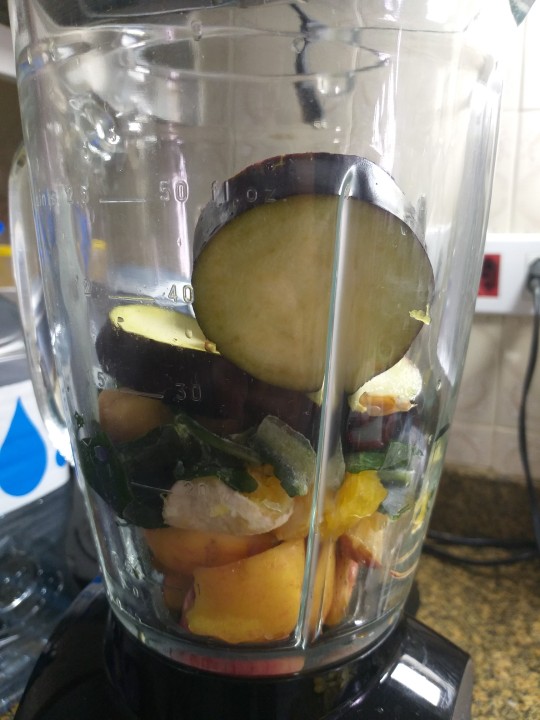
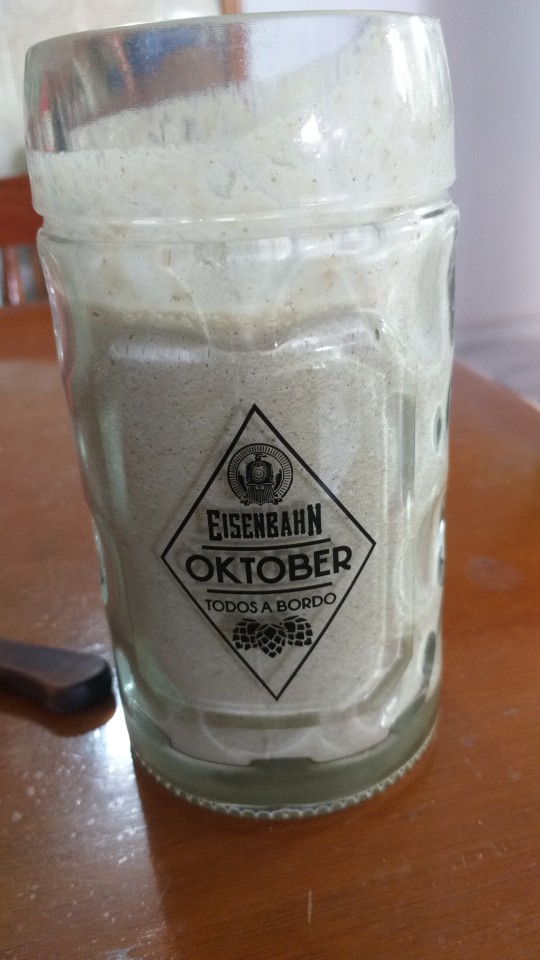

#project batman#batman#bruce wayne#martial arts#training#exercise#fitness#work out#green juice#green juice benefits#green juice batman#detox#vitamins and nutrients#supplementation#whey protein#taking creatine#batman begins#batbale#health#superhero fitblr#sports nutrition#vitamins#minerals#nutrients
6 notes
·
View notes
Text
Selecting Your Food Supplements – Quality Matters

Are you tired of scouring the web, looking for the best food supplements or nutritional supplements? The internet is flooded with countless flooded with numerous dietary supplement options. If you are looking for the food supplements for the first time and you are new to this then you are likely to be confused with the options available. Most of us do not know how to select our food supplements and as a result, we make mistakes.
One of the most common approaches when screening hair skin and nails vitamins is to limit oneself to the cost factor. People tend to settle for the lowest priced supplements available online without paying attention to the other crucial aspects. Health supplements promise a wide range of benefits but all the benefits promised could be enjoyed only when the supplements you choose work exactly the way they promise to work. In reality, that is never the case. Not all brands are made equal. So, if you are going to look for the lowest priced supplements then it may not be the best way to select your food supplements.
You should instead make quality your priority when ordering your omega 3 fish oil capsules. Only by sourcing the finest quality food supplements you can be sure of getting the promised results or else you would be wasting whatever money you spend on them. When we take a quality-based approach it is important to find out whether the food supplements you are selecting are made of natural ingredients. Supplements made of non-GMO ingredients and natural ingredients are considered safer as opposed to chemical-based supplements. The nutritional supplements you take must fill the gap in your diet and help your overall health. It must not undermine your health.
Food supplements can be ordered online conveniently. However, you need to first screen your online suppliers. The quality of the supplements you order will depend on the suppliers you choose. Before placing the order, you must check the reputation of the supplier. You must also ensure that the supplements you order are delivered on time. When you pick reputed suppliers, you do not have to worry about such issues. You will get excellent quality supplements delivered on time.
You do not have to be paranoid, there are many reliable suppliers of dietary supplements. It is just a matter of time that you spot them. If you are going to rush through your orders without adequate screening of the suppliers and without checking the customer feedback then it would be your fault. All the information you need are just a few searches away.
Once you establish the credibility of a supplier, you will be able to go back to that supplier for all your subsequent requirements. Therefore, it is worth investing time in the screening process. Screen multiple suppliers before you narrow down on your choices. This will simplify your food supplements sourcing process down the line as you will not be required to screen your supplier for every order.
#omega 3 fish oil capsules#nutritional supplements in India#food supplements in India#milk thistle supplement#milk thistle tablets#whey protein powder for weight loss#protein powder for weight loss#organic protein powder#hair skin and nails vitamins#green coffee extract capsules#organic apple cider vinegar#whey protein weight loss#ashwagandha supplement#healthiest protein powder#ashwagandha capsule benefits#nutritional supplements#weight loss supplements#best supplements for health#collagen supplements benefits#amino acid supplements#protein shakes for weight loss
1 note
·
View note
Text
Choosing the Best Whey Protein Powder
Look at different whey protein powder options. Learn about protein powder benefits in this article.
Unlock your ultimate workout
Shop Now
If you buy products above KSH 5000, you get a free delivery. You will get these products at discounted rates.
Protein Powder for Weight Loss
The following are the top 5 protein powders for weight loss:
Phedracut Lipo X Gold
Kshs 3,999
Meratrim is a…

View On WordPress
#fitness#health#nutrition#protein#supplements#whey protein 1kg price in Kenya#whey protein for weight gain#whey protein gold standard price in Kenya#whey protein isolate#whey protein powder#whey protein powder benefits#whey protein price in Kenya
0 notes
Text
WHAT IS WHEY PROTEIN CONCENTRATE AND HOW IS IT MADE?
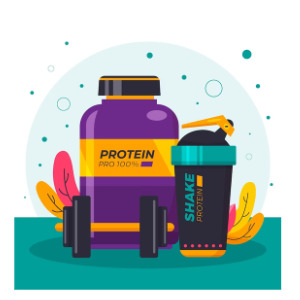
Derived from the cheese-making process, Whey Protein Concentrate is rich in essential amino acids and bio-active compounds. that provide immune boosting and antioxidant benefits. This naturally flavored, grass-fed, organic natural nutrients-packed supplement promotes muscle growth and supports overall health.
#whey powder#whey protein#how whey are mode#benefits of whey protein#process of making whey protein#health
0 notes
Link
1 note
·
View note
Text
Five Side Effects of Whey Protein
There are a few potential side effects of whey protein that you should be aware of. These include increased bowel movements, diarrhea, nausea, and bloating. If you experience any of these side effects, you should reduce your intake of whey protein or stop taking it altogether.
Whey protein is generally considered safe, but it is always best to speak with your doctor before starting any new supplement.
Whey protein is a popular dietary supplement, but it can have some side effects. Here are five potential side effects of whey protein:
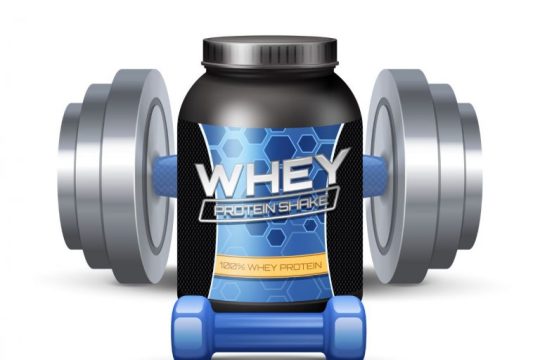
1. Digestive issues
Whey protein can cause digestive issues like bloating, gas, and diarrhea. This is especially true if you have a sensitive stomach or you're not used to consuming large amounts of protein.
2. Kidney problems
Whey protein can put extra strain on your kidneys, which can lead to kidney stones or other kidney problems. If you have kidney problems, you should avoid whey protein. Whey protein consumption can hamper the regular functioning of your kidneys by increasing the plasma urea content, urinary calcium excretion, and urinary volume.
This overburdens the kidneys and can lead to kidney stones. If you are consuming whey, don’t forget to increase your water and fiber intake to neutralize the same.
3. Allergic reactions
Some people are allergic to whey protein. Symptoms of an allergic reaction include hives, itching, swelling, and difficulty breathing. If you're allergic to whey protein, you should avoid it.
4. Liver damage
Whey protein can cause liver damage in some people. Symptoms of liver damage include fatigue, nausea, and yellowing of the skin. If you have liver problems, you should avoid whey protein. Whey protein can also lead to liver damage over time if one consumes it without being in the habit of exercising.
While it is known to aid muscle synthesis, it can act very differently and result in undesired outcomes if one consumes it without exercising. In that case, the protein goes to the liver for processing and hence, can damage the liver over time.
5. Unhealthy blood pressure levels
Whey protein can cause unhealthy blood pressure levels in some people. If you have high blood pressure, you should avoid whey protein.
1 note
·
View note
Text
talked about this elsewhere in more detail but I got into a (casual, beginner-level, baby's first) weightlifting routine at one point, it was really good for me, actually doing it was pleasurable and so were the physical effects on my body. I was not eating less, I was going out of my way to eat more, a lot more, I literally needed to eat more to get any gains, the advice I looked up and benefited from was about eating more (and getting more of things like whey protein sure, but it wasn't in an orthorexic restrictive way, it was about Eating More.) again, this all felt really, really good for me
even if I didn't know about what fatphobia and eating disorders and “health”/“diet” industry grifts have meant for people I care about, that alone would be enough that whenever I see some shit about exercising—especially for women—being about “weight (fat) loss” to be combined with restrictive eating I just feel like the fucking joker. you know nothing. I will destroy you
25 notes
·
View notes
Note
hey, do you have any advice for women trying to build muscle? I'm specifically looking to build some muscle in my chest.
Ok, so I'm going to be completely honest with you and tell you that I am less than one year into seriously weight training. I am by no means an expert nor am I a health professional. With that in mind, I'll tell you what I know. :) You are free to message me as well if there's anything more you would like to know. It's impossible to cover everything in one post but I will do my best to be helpful.
There is quite frankly SO MUCH to learn about growing muscle, but it is doable. If you have a curious and open mind and love to research then those are amazing assets to have because there are always ways to refine your technique and improve diet and rest. These might seem pretty basic so maybe you already know a lot of this (I don't know your experience level so I'm gonna talk as if speaking to a total newbie) but I'll cover what I think is important.
Eat lots of protein. Shoot for 0.7-0.8g of protein per pound of lean body mass. If you are already pretty lean you can use your normal weight but if you are obese then you should try to figure out how much of your weight is fat and calculate your lean body mass from there. Protein powders such as whey protein and pea protein are very helpful and can be more affordable than other sources. Some people will say 1g of protein per pound of body weight but honestly it may be a bit overkill. Try to eat your protein not all in one sitting otherwise your body will convert a bunch of it into energy instead of muscle. Have some of your daily protein with each meal instead, you can break it into snacks as well.
Train hard, REST HARDER. If you don't rest your body will not be able to create more muscle. Get at least 8 hours nightly, more is probably better. After working out, do not exercise the same muscles you trained for a minimum of 48 hours. Use this time to exercise different muscle groups, or rest.
Technique/form >>> lifting heavy. Form is important for safety and to also ensure you are stimulating the targeted muscles instead of inadvertently using other parts of the body to get the work done. Control the eccentric (lengthening the muscle) phase of an exercise by performing it slowly for 1-3 seconds. Concentric (shortening/contracting the muscle) phases can be done explosively and quickly but you must always be in control of the weight and not use momentum to move the weight around. Rest 1-3 minutes (some people say minimum 2 minutes, you can also rest longer if needed) between sets to make both your muscles AND nervous system enough time to recover.
STOP THE WORKOUT IF YOU ARE EXPERIENCING PAIN/NAUSEA/LIGHTHEADEDNESS/FEELING FAINT/ANYTHING ELSE YOU'RE CONCERNED ABOUT. Some discomfort is okay, but as soon as you feel pain in your muscles or joints or anything else that is serious you have to stop or you may seriously harm yourself. It is important to be in contact with your primary healthcare provider and adapt your workouts to your own specific health needs.
BE PATIENT. Women can expect to gain about one pound of muscle per month through weight training. You should not weight train solely for muscle gain, but also for the health benefits in improved cardiovascular health, improved mental health, increased energy and strength, better sleeping habits, and good diet (lots of proteins and veggies).
Record the types of exercises you do, how many sets and reps you did, and how much weight you used for those sets and reps. Weight training is built upon the concept of progressive overload, which means increasing training volume (weights * sets * reps) over time, by increasing one (or more) of those variables (so upping the weight, sets, and/or reps). In order to utilize progressive overload effectively, you MUST record your progress so that you are not guessing how much you lifted the last session and end up potentially stunting your progress. When you're putting in this much time and effort you do not want to wing it and waste a workout session.
--
Now, you want to build chest muscle. I personally work more on leg and arm muscles but I do work out my entire body. I'm saying this to convey that I am not the most experienced. However, this is what I know.
You should try to get around 10 sets of chest exercises weekly to stimulate muscle growth (standard across the board for muscular hypertrophy in any muscle group). You can do more (I do bc I have a lot of free time) but don't burn yourself out, because consistency is arguably the most important factor when it comes to muscle growth. You have to commit for several months and then years. 10 sets of 5-8 reps (repetitions) weekly should cause muscular hypertrophy (muscle growth). You can do all ten sets in one session, or break it down into two sessions where you do five sets each. It all depends on your personal schedule. Start light in order to get accustomed to whichever chest exercises you choose first, and then lift the heaviest you can without breaking form/cheating the rep.
It is completely possible to work out your chest muscles without doing bench presses. HOWEVER, in the event that you do bench presses, here are some safety tips. NEVER use clips to secure weights on either side of the barbell when you are performing bench presses without a spotter, otherwise you may become stuck when failing a bench press and will be unable to free yourself because the weights are unable to slide off onto the floor, lightening the bar. Bench pressing without a QUALIFIED spotter (not some gym rando you don't know) is not ideal, however it can be hard to get a spotter so that's why I'm giving you this tip in case you decide to solo bench press anyway. Personally I almost never bench press and opt to use the machines which are much safer to use solo.
Personally I use pec/chest fly machines and chest press machines to work out my chest, along with shoulder presses to stimulate part of the upper chest (but of course those are mostly for my shoulders). On youtube there are a bunch of demonstration videos (including by women) so you can look at those if you need more guidance than the instructional stickers on the sides of exercise machines. Remember to get good stretches of the chest muscles under tension on chest fly machines (cable machines are good too) bc that stimulates the muscles a bunch and results in good growth. Incline chest presses are good too.
You can use pushups to stimulate muscle growth in the chest, HOWEVER it is not possible to utilize progressive overload using calisthenics (exercises with (little to) no external weights/objects) unless you like... idfk wear a backpack with weight on it or something. So you can use this to grow chest muscle initially, however your growth would end up plateauing after a certain point.
If you have any more questions just let me know, again I'm not a pro but I'm glad to help in any way I can. There is so much more I could have added but I hope this post has helped you at least even a little bit.
Edit: This ask refused to publish a few times because of how damn long my post was lmao
14 notes
·
View notes
Text
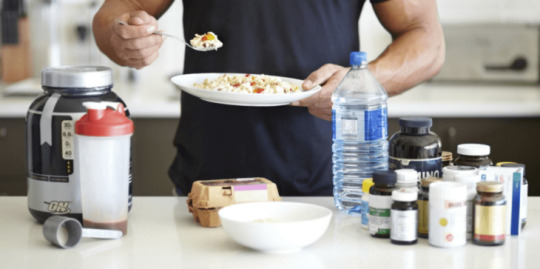
Boost Your Fitness and Performance with the Right Supplements
In the pursuit of improved fitness and performance, many athletes and fitness enthusiasts turn to supplements to give them an edge. While a balanced diet should always be the foundation, certain supplements can complement your training regimen and help you reach your goals faster. Let’s explore some of the most effective supplements for enhancing fitness and performance.
1. Protein Powders
Protein is essential for muscle repair and growth, making it a cornerstone of any fitness program. Protein powders, such as whey, casein, and plant-based options like pea or hemp protein, offer a convenient way to increase your protein intake. They can be consumed as shakes or added to smoothies, providing a quick and easy source of high-quality protein.
2. Creatine
Creatine is one of the most researched supplements for improving strength and power. It works by increasing the body’s stores of phosphocreatine, which helps regenerate adenosine triphosphate (ATP), the primary energy currency of cells. This can lead to improved performance during high-intensity activities like weightlifting and sprinting.
3. Branched-Chain Amino Acids (BCAAs)
BCAAs, including leucine, isoleucine, and valine, are essential amino acids that play a crucial role in muscle protein synthesis. Supplementing with BCAAs can help reduce muscle breakdown during exercise, enhance recovery, and promote muscle growth.
4. Beta-Alanine
Beta-alanine is a non-essential amino acid that combines with histidine to form carnosine, a compound that helps buffer acid in muscles during high-intensity exercise. By increasing muscle carnosine levels, beta-alanine supplementation may delay fatigue and improve endurance during activities like sprinting and interval training.
5. Caffeine
Caffeine is a well-known stimulant that can enhance performance in various ways. It increases alertness, reduces perceived exertion, and can improve endurance by stimulating the release of adrenaline and mobilizing fatty acids for energy. Caffeine can be consumed in supplement form or obtained from sources like coffee and tea.
6. Omega-3 Fatty Acids
Omega-3 fatty acids, found in fish oil supplements, have anti-inflammatory properties that can benefit athletes by reducing exercise-induced inflammation and promoting faster recovery. Additionally, omega-3s support cardiovascular health, which is crucial for overall fitness and performance.
7. Vitamin D
Vitamin D plays a vital role in bone health, muscle function, and immune function, making it important for athletes and active individuals. Many people have suboptimal levels of vitamin D, especially those who live in northern latitudes or spend limited time outdoors. Supplementing with vitamin D can help ensure adequate levels for optimal performance and overall health.
8. Electrolytes
Electrolytes such as sodium, potassium, and magnesium are essential for hydration, muscle function, and nerve signaling. During intense exercise, especially in hot conditions, electrolyte losses through sweat can impair performance and increase the risk of cramping. Electrolyte supplements or sports drinks can help replenish these crucial minerals and maintain electrolyte balance.
9. Nitric Oxide Boosters
Nitric oxide (NO) is a molecule that dilates blood vessels, increasing blood flow to muscles and improving nutrient and oxygen delivery. Supplements containing ingredients like citrulline and beetroot extract can enhance NO production, leading to better endurance and performance during workouts.
Conclusion
Supplements can be valuable tools for enhancing fitness and performance when used appropriately alongside a well-rounded diet and training program. However, it’s essential to choose high-quality supplements, stay within recommended dosages, and consult with a healthcare professional or nutritionist if you have any concerns or underlying health conditions. With the right combination of supplements and dedication to your fitness goals, you can maximize your potential and achieve the results you desire.
#fitness motivation#health#fitness#supplements#gymlife#workout#health and wellness#healthy lifestyle#wellness#gym#diet#healthcare#health tips#healthy living#weight loss#nutrition#healthy diet
4 notes
·
View notes
Text
Something I see online that's frustrating to me is you'll get people telling the vegan activists who promote veganism as a universal ideal that there are disabled people who can't have a vegan diet, but then a lot of the people who point this out don't seem to know what conditions actually cause that. And then you end up having arguments about that so I want to actually point out a few examples
I think the number one example where there's no way to safely, healthfully avoid having to consume animal products is haemodialysis for kidney failure. People on dialysis need more protein than other people because they lose protein and blood cells during the dialysis process, and they are required to have a low potassium diet because their kidneys can't filter potassium. This means legumes and soy aren't viable alternatives. [x] "Renal dietitians encourage most people on haemodialysis to eat high-quality protein because it produces less waste for removal during dialysis. High-quality protein comes from meat, poultry, fish, and eggs." [x] If you can't meet your protein needs with these foods for whatever reason, you'll be prescribed whey protein powder, which is made from dairy. [x]
Ketogenic diets are also high in animal proteins. They're innately low carb and high in fat, which means legumes and other meat alternatives aren't a great fit. "The ketogenic diet can boost insulin sensitivity and cause fat loss, leading to significant health benefits for people with type 2 diabetes or prediabetes." [x] PCOS, a common condition effecting about 10% of people who menstruate, is also often treated with a low carb, high protein diet because it involves insulin resistance. [x]
Ketogenic diets may also be recommended to treat seizures in epilepsy. [x] It is most frequently used for focal seizures in children, infantile spasms, Rett syndrome, tuberous sclerosis complex, Dravet syndrome, Doose syndrome, and GLUT-1 deficiency. In these conditions, ketogenic diets can reduce or even eliminate seizures.
People with food allergies can find it difficult to afford safe and healthy food in general. [x] The inability to rely on cheap, plant-based proteins like canned beans or dried lentils can be a general hardship, especially when disabilities themselves can limit job opportunities or the capacity to work.
Intestinal disorders are another factor that can make vegan diets difficult. Foods high in insoluble fibre, like beans and other legumes, as well as nuts and seeds, can cause Crohn's flare ups in some people. [x] Seeds, nuts, and legumes can also be trigger foods for people with ulcerative colitis. [x] IBD flare ups are not like a run-of-the-mill case of intestinal discomfort. They can land people in the hospital and require major surgery. [x]
For allergies, the main factor that can make a vegan diet difficult isn't allergy to specific vegetables, but to specific plant proteins. Someone who is allergic to soy, peanuts, or other legumes will have more limited options for meeting their daily protein requirements on a vegan diet. People with allergies to a broad spectrum of legumes may not have any reasonable substitution options. Substitutions can also increase the price point and make a vegan diet too expensive for people in poverty who also have allergies. Poor people with food allergies may find it difficult in general to afford a safe and healthy diet. [x]
For some people, including some disabled people, a vegan diet may in fact be ideal. Vegan diets can certainly be part of a healthy diet when trying to reduce bad cholesterol [x], treat high blood pressure [x], or treat earlier stages of kidney disease. [x] And while insulin resistance may be best treated with a ketogenic diet in some people, others do seem to benefit from a plant-based diet instead. [x] A person's diabetes specialist and trained dietitians can help them figure out which is best for them, potentially based on other factors like whether or not they have high blood pressure or bad cholesterol, or whether their diabetes risks are linked to PCOS or other known metabolic conditions.
Achieving sustainable food production and equal access to a safe, nutritious, well-balanced diet is fundamental to us all. But there's simply no one-size-fits-all ideal human diet, and that's something everyone needs to take into account.
30 notes
·
View notes
Note
Forgive anon's ignorance, Masa, but what are lysozyme and lactoferrin used for?

Uhhh...Nakamura?

Lactoferrin is a multifunctional protein of the transferrin family, and is found in whey milk produced by most mammals. Lysozyme is a ~14 kDa protein present in many mucosal secretions and tissues of animals and plants, and plays an important role in the innate immunity, providing protection against bacteria, viruses, and fungi.

Both can be added to baby formula for health benefits if the mother isn't able to nurse.
#danganronpa#nwpm#neo world program monitor#masa esumi#kyoji nakamura#a student out of time#DR#The Price of Fate arc
7 notes
·
View notes
Text
Transform Your Body: The Ultimate Guide to Supplements and Herbal Remedies for FTM Workouts and Increased Testosterone Levels
Are you searching for the definitive guide to supplements and herbal remedies for female-to-male transgender (FTM) exercises and improved testosterone levels? Look no further! This in-depth guide will provide you with all of the knowledge you need to make educated judgments regarding the most effective supplements and medicinal herbs for bringing about a transformation in your body.

We'll cover everything from how they can improve muscle mass, strength, endurance, libido, energy levels, mental clarity, and more. With this information, you can be certain that any dietary supplement or herbal treatment that you select is appropriate for your specific requirements. So get ready to unlock your potential as we explore all of the fantastic benefits that these natural tools have to offer!
Overview of Supplements and Herbal Remedies for FTM Workouts
Supplements and herbal treatments are potent tools that can assist in providing you with the most from your workouts and achieving your fitness goals. They can provide essential nutrients, vitamins, minerals, and other compounds that your body needs to grow muscular, strong, and healthy. Some supplements may even be able to increase testosterone levels in FTM individuals experiencing issues with low testosterone, which can have a positive effect on strength, endurance, and libido, as well as work to lower gender dysphoria.
When it comes to supplements, you should always look for those that are specifically made for trans-masculine individuals. These products will contain the ideal balance of ingredients needed to get the most out of your workouts while avoiding any potential side effects. Some of the most popular choices include whey protein, creatine, and BCAA supplements.
In addition to supplements, several herbal remedies may be able to help you get the most out of workouts designed for trans-masculine bodies. These natural alternatives can provide significant benefits in terms of increased testosterone levels, higher levels of sexual functioning, improved energy levels, mental clarity, and more. Some popular herbal supplements for female-to-male transgender individuals include tribulus terrestris, DHEA, ashwagandha, and fenugreek.
Benefits of Supplements and Herbs for FTM Workouts and Increased Testosterone Levels
Working out is a great way to stay fit and healthy when thinking about transgender health, but if you're looking to take your physique to the next level during your transition process, taking supplements and herbs can help. The fantastic this is that most of these aren't inherently testosterone supplements, but they do wonders to boost testosterone levels anyway!
For example, supplements like tribulus terrestris can boost follicle-stimulating hormones, which in turn can increase testosterone production and promote muscle growth.
Furthermore, zinc deficiency has been linked to testosterone deficiency; therefore, supplementation with zinc is an excellent way to increase testosterone production in FTM individuals.
Meanwhile, Tongkat Ali root—touted as one of the most powerful testosterone therapy boosters around—combines the important hormones DHEA and androsterone for enhanced testosterone levels.
Herbs like ashwagandha are also great for regulating cortisol levels, which could be reducing your levels of sexual desire, as well as cause other adverse effects like weight gain.
So if you're looking for long-lasting gains from engaging with FTM-oriented workouts, herbal remedies, and dietary supplements are worth considering!
Types of Supplements to Consider
Supplementation is an important part of any workout routine, particularly for those transitioning from female to male. The right supplements help facilitate the impact and success of the exercise program while supporting an increase in testosterone levels, and there are myriad supplements that can be employed to your benefit.
Hormone therapy
Hormone therapy is a type of supplement taken to raise testosterone levels. It usually consists of synthetic or bio-identical hormones and can be taken orally or injected. It’s important to speak with your doctor before starting any hormone therapy program as long-term use can cause an increased risk of certain health problems such as prostate cancer or heart attack.
One type of hormone therapy is testosterone replacement therapy (TRT). Testosterone replacement therapy for regulating hormone levels in transgender patients is an important step in transitioning. The process begins with an evaluation from a qualified healthcare professional, who can assess the patient’s eligibility and physical readiness before prescribing hormone treatments.
Generally speaking, testosterone therapy involves the gradual, long-term introduction of testosterone into the system to initiate visible physical changes in the body. This could involve pills, topical gels, intramuscular injections, or other modes of delivery, depending on what is most suitable for the patient and prescribed by their doctor.
Changes caused by introducing testosterone into the body can include the growth of muscle mass, decreased fat distribution around hips and thighs, changes in sex drive, facial and body hair growth, and a deepening of the voice. However, these outcomes will differ between individuals and many different variables influence the success of hormone replacement therapy.
Some gender-affirming hormone therapy treatments are available over the counter, and in some instances, a doctor’s prescription is not required. It is important to discuss any possible risks with your healthcare provider before starting any kind of hormone replacement therapy.
Creatine
A naturally occurring amino acid called creatine is used to replenish muscle glycogen stores after rigorous exercise. It is an essential supplement for any trans person who is serious about their workout regimen.
Creatine helps to boost the body's ability to perform at a higher intensity and for a longer period, leading to increased gains in strength, speed, and power. Supplementing with creatine increases the body’s production of ATP, which is responsible for the muscles' contractile function and energy transfer.
Creatine also helps muscle cells absorb more water, resulting in bigger muscles and faster recovery times after intensive workouts. This supplement has risen to popularity rather quickly due to its many advantages, becoming one of the most prominent supplements among those trying to boost muscle mass, strength, and stamina. Therefore, creatine is an essential part of any health regimen for transgender men seeking noticeable physical changes from their workouts.
Other Supplements and Herbal Remedies
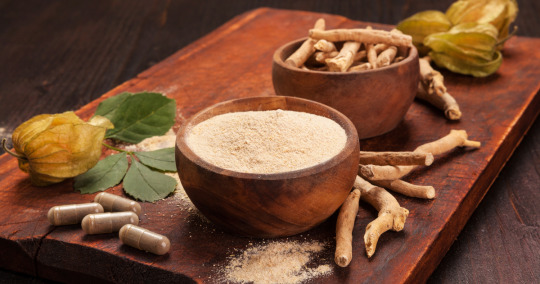
To maximize the benefit of an FTM workout, consider adding the following supplements to your regimen: ZMA, whey protein, Omega-3 fatty acids, ashwagandha, and maca root powder.
ZMA
ZMA supplements help with muscle growth and affect testosterone levels. Additionally, research suggests that it is possible to experience improvements in sexual function by taking a daily ZMA supplement. ZMA is testosterone-boosting, libido-enhancing, and mood-elevating, making it an ideal supplement for those interested in these benefits.
The clinically studied ingredients in ZMA have been found to increase free testosterone levels and reduce feelings of stress, which can help address the physical and psychological barriers that often impede reaching improved sexual function.
These natural ingredients also balance out hormones involved with reproduction and libido such as estrogen and progesterone, which are primarily useful for MTF individuals instead of FTM. Increased energy levels are also associated with ZMA supplementation, providing improved stamina.
Whey protein
Nutritionally, whey protein is highly recommended for transgender men in transition. This advantage is because whey protein contains all nine essential amino acids, including leucine, which helps increase muscle mass.
This can be beneficial during a masculine transition as increased muscle mass results in increased testosterone production, leading to optimal health and improved progress in transition-related goals such as appearing more masculine by decreasing physical components of gender dysphoria.
Additionally, many forms of whey protein offer a good source of calcium and vitamin B12—two essential vitamins necessary for healthy bone mass and nervous system function that may be lacking when on hormone therapy. With adequate doses of whey protein plus proper safety measures, the FTM transition can become even more fruitful.
Omega-3 fatty acids
Omega-3 fatty acids improve natural hormone balance helping restore normal testosterone levels. They are essential for overall health and well-being, but they can be especially beneficial to those transitioning toward masculinity. Omega-3 fatty acids have been linked to improved growth in muscles, healthy testosterone levels, improved brain function and clarity, better circulation, a healthy heart rate, and circulatory system, improved sleep quality, and an enhanced immune system.
Moreover, omega-3 fatty acids have been demonstrated to lower inflammation in the body, which may aid in recovery by decreasing the necessary recovery periods after intense workouts. Furthermore, research suggests that omega-3 supplements aid in improving mental health, since they can reduce feelings of anxiety and depression that can accompany transitioning.
Taking regular supplements of omega-3 fatty acids or incorporating omega-3-rich foods like salmon and flaxseed into your diet can be a great way to improve physical and mental health while transitioning.
Ashwagandha
Ashwagandha has long been known for its testosterone-boosting properties. It is a powerful herbal supplement that has become increasingly popular as a supplement for transgender people. It contains active compounds that have been used to help improve overall well-being and health.
Clinical studies found that ashwagandha can reduce the levels of cortisol, a hormone known to increase when under strain or stress. Furthermore, it can also boost testosterone levels, whilst decreasing inflammation and preventing excess weight gain.
This incredible herb is known to calm the body and support its natural healing process which makes it an ideal supplement for trans-masculine people. With regular use, ashwagandha can help regulate hormone levels and provide relief from anxiety or depression. Ashwagandha is undoubtedly a necessity for optimal transgender health.
Maca root
Maca root helps promote healthy oxygen levels in the body contributing to an increase in testosterone production. It has been shown to provide incredible nutritional benefits for trans men especially.
Maca root, harvested from Peru and other parts of South America, is an effective natural supplement with several amazing health benefits. Its high vitamin and mineral content makes it a useful aid in maintaining stamina and relieving tension, both of which are essential for those transitioning from female to male bodies as adequate amounts of energy and relaxation are needed for the process.
Additionally, maca root helps to boost physical strength and endurance, allowing transgender men to face the demands imposed by their transitioning journey more consistently. Furthermore, maca roots are rich in antioxidants that support overall well-being; important for those embarking on hormone replacement therapy which can cause a wide variety of negative side effects due primarily to increased amounts of powerful hormones being introduced into the body.
All these features make maca root an ideal supplement for those beginning or undergoing transition, as it can provide more power to face day-to-day tasks and pressures while maintaining good health during what can be an otherwise tumultuous time.
Supplementing with these types of products will not only boost testosterone levels but also support healthy workouts needed to complete your transition process with minimal stress.
How to Choose the Right Supplement for You
When it comes to supplements, always look for those that are specifically made for FTM individuals, as these are more likely to be optimized for your body's needs. Here's how to choose the right supplement for you:
Consider your workout type and intensity
Different supplements work best with different types of workouts. For example, if you're focusing on weight training, you'll want to look for products that contain anabolic compounds like creatine or testosterone boosters like tribulus terrestris. On the other hand, if you're working on cardio or HIIT, you'll want to look for products that contain stimulants or energy boosts like caffeine or B vitamins.
Check the ingredients
Be sure to read the label and check the ingredients before you buy any supplement. Make sure that what you're buying is safe by ensuring it contains only natural plant-based ingredients with no added sugars or preservatives.
Do your research
It's always important to do ample research before taking any supplement. If you're wondering whether or not the supplements for your exercise regimen are having a positive effect, reading reviews and talking to other people who have used the same product might help.
Effectiveness
Make sure the supplement you choose is effective. Research shows that certain natural ingredients can be highly beneficial for those transitioning from female to male bodies, but not all supplements are equally effective. Be sure to pick a product that is formulated specifically for trans-masc individuals to get the most benefit from it, and conduct more research on your own to make sure the supplement you choose is optimal for your goals.
Consult a doctor
Before starting any new supplementation routine, it's important to check with your doctor first and make sure that the supplement won't interact negatively with any medications you're taking. Otherwise, it's possible that a supplement can induce an unwanted or negative effect.
By following these tips, you can be sure that you're choosing the right supplement for your workouts and getting the most out of them.
With the help of supplements, you can reach your fitness goals and complete your transition journey with success.
Health Risks Of Using Supplements for FTM Workouts and Increased Testosterone Levels
Although supplements can be incredibly beneficial for trans men, it's important to remember that they can also pose some serious risks. Excessive consumption of certain supplements may lead to increased testosterone levels, which can have an effect on the body and cause certain health risks. Too much of a good thing can be bad, as the saying goes.
These adverse effects include high blood pressure, liver damage, depression, and anxiety. It is important to only take the recommended dosage of any supplement and consult a doctor before taking any new ones. Additionally, be sure to monitor your testosterone levels regularly to ensure they remain within healthy ranges.
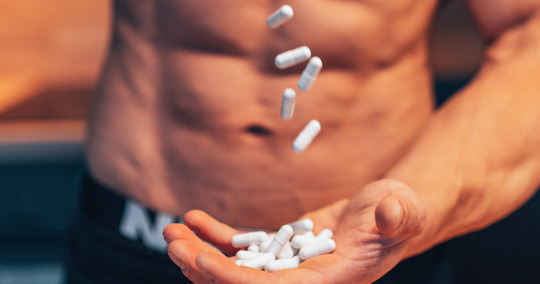
Making the Most of Your Daily Supplements
Set Specific Goals
Before starting a supplement routine, you should always have a goal in mind. Setting specific goals will help you plan your diet and supplement regimen to get the most out of it.
Start Slowly
Don't overdo it when starting a supplement regimen. If you're taking a supplement, start with a low amount and work your way up as your body adjusts.
Take Supplements Consistently
Supplements work best when taken consistently. Develop a schedule for taking your supplements and stick to them so that your body can benefit from them most.
Product Consistency
Be sure to stick with the same product if you find one that works for you. Different supplements or different brands may have different ingredients and dosages, so it's important to stay consistent to get full benefits from them.
Eat Healthily
Supplements may help you reach your fitness goals, but don't forget the importance of eating a balanced diet. To maximize the effectiveness of your supplements, aim for a diet rich in fresh fruits and vegetables and lean meats.
Keep Track
Track your progress by writing down any changes you notice after taking a supplement and make adjustments to your regimen as needed. This will help you monitor your results so that you can make sure that you're getting the best out of your exercise and supplementation routines.
Dosage
Always adhere to the recommended dosage indicated on the bottle of any supplement you take. Taking more than what is advised can be dangerous and lead to serious adverse effects.
Common Questions About Using Supplements and Herbal Remedies
Are herbal supplements safe?
Herbal supplements are generally considered safe and can be an effective way to boost testosterone levels. However, it's important to do your research and consult with a doctor before taking any supplement to avoid potential adverse effects that you may not be aware of.
When will I feel the effects of taking a supplement?
Generally, it can take a few weeks for supplements to start working. Consistently taking your supplements as directed and waiting for them to take effect might be frustrating, but you should start to notice an improvement in your testosterone levels over time.
How often should I take my supplements?
It depends on the type of supplement you're taking. Most supplements should be taken daily to see the most benefit. However, always read the directions on the label and follow them carefully.
Using supplements and herbal remedies can be a great way to boost testosterone hormone levels and help improve the benefits of many workouts. Be sure to do your research, consult with a doctor, and take your supplements as directed to get the most benefit from them.
Final Thoughts
For those planning to transition from female to male, supplements can be an invaluable tool for reaching their fitness goals and staying healthy throughout their journey.
A testosterone-boosting supplement composition can be an effective way to increase testosterone levels in those who are experiencing a testosterone deficiency. Supplements can also be used to boost the benefits of workouts for trans-masc individuals, allowing for a higher level of intensity and more significant results.
Nonetheless, it's crucial to keep in mind that supplements shouldn't be your only strategy for success. A healthy diet and regular exercise still play an important role in improving overall health and wellness.
Follow the advice given above and know all the risks associated with taking supplements for FTM workouts, so you can safely use these products to help you transition and reach your health goals.
10 notes
·
View notes
Text
Whey Protein Concentrate: A Nutritional Powerhouse
Whey protein concentrate is not your average protein supplement—it's a nutritional powerhouse. It ranks among the most extensively studied protein supplements globally, and for good reason. While it is primarily recognized for its protein content, whey protein concentrate offers much more to support your overall well-being.
Muscle Growth: One of the standout benefits of whey protein concentrate is its ability to promote rapid and clean muscle growth. This supplement provides your body with the essential amino acids necessary for muscle development, making it an invaluable tool for athletes, fitness enthusiasts, and anyone looking to build a lean and strong physique.
Muscle Recovery: Beyond muscle growth, whey protein concentrate excels in supporting swift muscle recovery. Whether you've had an intense workout or simply want to recover from everyday wear and tear, our whey protein concentrate can help you bounce back faster, reducing downtime and discomfort.
Whey Protein Concentrate: The foundation of supplement, delivering a powerful protein punch.
Stevia Extract: A natural sweetener that adds a touch of sweetness without the calories.
Dutch Cocoa Powder: Enhancing the flavor with rich, premium cocoa.
N&A Flavors: Natural and artificial flavors for an irresistible taste.
Gum Powder: To improve texture and consistency.
Sea Salt: Providing a hint of saltiness for balanced flavor.
Silicon Dioxide: Ensuring product stability and quality.
Incorporating whey protein concentrate into your daily routine can be a game-changer on your path to optimal health and fitness. Whey protein concentrate that not only supports muscle growth and recovery but also tastes fantastic.
Don't miss out on the incredible benefits of whey protein concentrate. Whey Protein Concentrate today and experience the difference for yourself. Fuel your journey to optimal health and unlock your full potential with our exceptional whey protein concentrate.
2 notes
·
View notes
Text
Title: The Wonders of Omega-3: A Comprehensive Guide to its Health Benefits
Introduction:
Omega-3 fatty acids are essential fats for maintaining overall health and well-being. While the human body cannot produce Omega-3s independently, they are abundantly found in various foods and dietary supplements. One of the most popular sources of Omega-3 is fish oil, renowned for its numerous health benefits. So, if you are looking for the best omega 3 supplement brand- look no further than Naturaltein. Check out our store for other supplements and the best whey protein supplements for improved performance and overall health.
Meanwhile check the article and know the benefits of Omega 3.
Understanding Omega-3 Fatty Acids:
Omega-3 fatty acids comprise three main types: eicosapentaenoic acid (EPA), alpha-linolenic acid (ALA), and docosahexaenoic acid (DHA). ALA is primarily found in plant-based sources like flaxseed and chia seeds, while EPA and DHA are found more in fatty fish such as salmon, mackerel, and sardines.
1. Heart Health:
Omega-3s are celebrated for their heart-protective properties. Research has shown that EPA and DHA can help reduce triglyceride levels in the blood, lower blood pressure, and prevent the formation of dangerous blood clots. These benefits collectively contribute to a reduced risk of heart disease and stroke, making Omega-3 an integral part of cardiovascular health.
2. Brain Health and Cognitive Function:
DHA, in particular, is a major component of brain tissue. It is crucial for brain development and maintenance throughout life. Studies have pointed out that consumption of Omega-3s may improve cognitive function, memory, and mood. Additionally, Omega-3s have been associated with less risk of age-related cognitive decrease and neurological disorders such as Alzheimer's disease.
3. Inflammation and Immune Support:
Omega-3s possess powerful anti-inflammatory properties, which can help alleviate chronic inflammation in the body. Chronic inflammation is related to numerous health conditions, including arthritis, inflammatory bowel disease (IBD), and autoimmune disorders. By reducing inflammation, Omega-3s can provide relief and support to those suffering from these conditions.
4. Joint Health:
Individuals dealing with joint pain and stiffness due to arthritis may find relief with Omega-3 supplementation. EPA and DHA have been shown to reduce joint tenderness and improve overall joint function, enhancing mobility and quality of life for people with arthritis.
5. Eye Health:
DHA is a significant component of the retina, the eye's light-sensitive layer. Consuming adequate Omega-3s has been associated with a lesser risk of age-related macular degeneration, a leading cause of sight loss in older adults.
6. Pregnancy and Child Development:
Omega-3s are vital for properly developing the baby's brain and eyes during pregnancy and breastfeeding. Expectant mothers who consume sufficient Omega-3s promote healthy brain development in their babies and may reduce the risk of preterm birth.
7. Skin Health:
Omega-3s can have a positive impact on skin health. Their anti-inflammatory properties help alleviate skin conditions like eczema and psoriasis and promote skin hydration and elasticity.
Conclusion:
Incorporating Omega-3 fatty acids into our diet can offer many health benefits, whether through fatty fish, nuts, seeds, or supplements. From supporting heart health to nourishing the brain and easing inflammation, Omega-3s are a powerhouse of nutrients. However, balancing and avoiding excessive consumption is essential, as high doses can interfere with blood clotting. As with any dietary changes or supplements, consulting with a healthcare professional to analyse the right Omega-3 intake for individual needs is recommended. By harnessing the wonders of Omega-3, we can take significant steps towards promoting our overall well-being and leading a healthier, more vibrant life.
2 notes
·
View notes
Text
HEALTH BENEFITS OF WHEY PROTEIN IN BODY
People most commonly use whey protein as a supplement alongside their resistance training program in order to improve their performance and recovery. However, there are a range of benefits of using whey protein.
Unlike other forms of protein supplements available on the market, whey is certainly the best as it consists of almost all the essential amino acids that are absorbed by our body quickly. Whey protein is also low in lactose content and carries a lot of health benefits. There is absolutely no denying that whey protein is the best recovery supplement post workout.
The quality protein content derived from the best protein supplement can range anywhere from 23 g to 50 g, which will provide you with ample protein to fuel your muscles. If you lack adequate protein in your diet, then you must order a high-quality whey protein supplement for your appropriate muscle growth.
In this article, we will be discussing the top 10 health benefits of using whey protein.
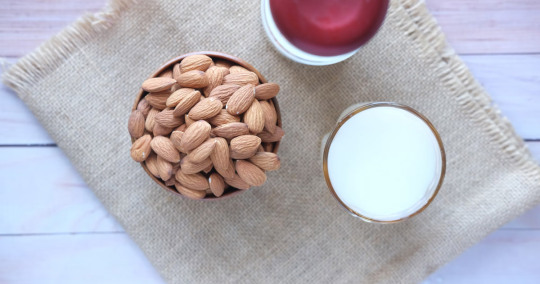
Top 10 Health Benefits of Whey Protein in Body
Increases Strength and Muscle Mass
Whey protein is capable of releasing insulin, an anabolic hormone that can help increase muscle mass and strength. If your whey protein contains leucine, and it must, then it will help in stimulating the muscle protein synthesis in your body. Whey protein helps in the generation of muscles faster.
Aiding Weight Loss
Whey protein will help you recover faster so that you can train harder. Also, it has been proved in a scientific study that people who consume whey protein are able to lose fat and excessive weight quicker than those who don’t. You will be able to build lean muscle with the best quality whey protein supplement ordered from one of the top health supplements websites, Muscle Trail.
Original Source: https://www.muscletrail.ca/blog-details/health-benefits-of-whey-protein-in-body
0 notes